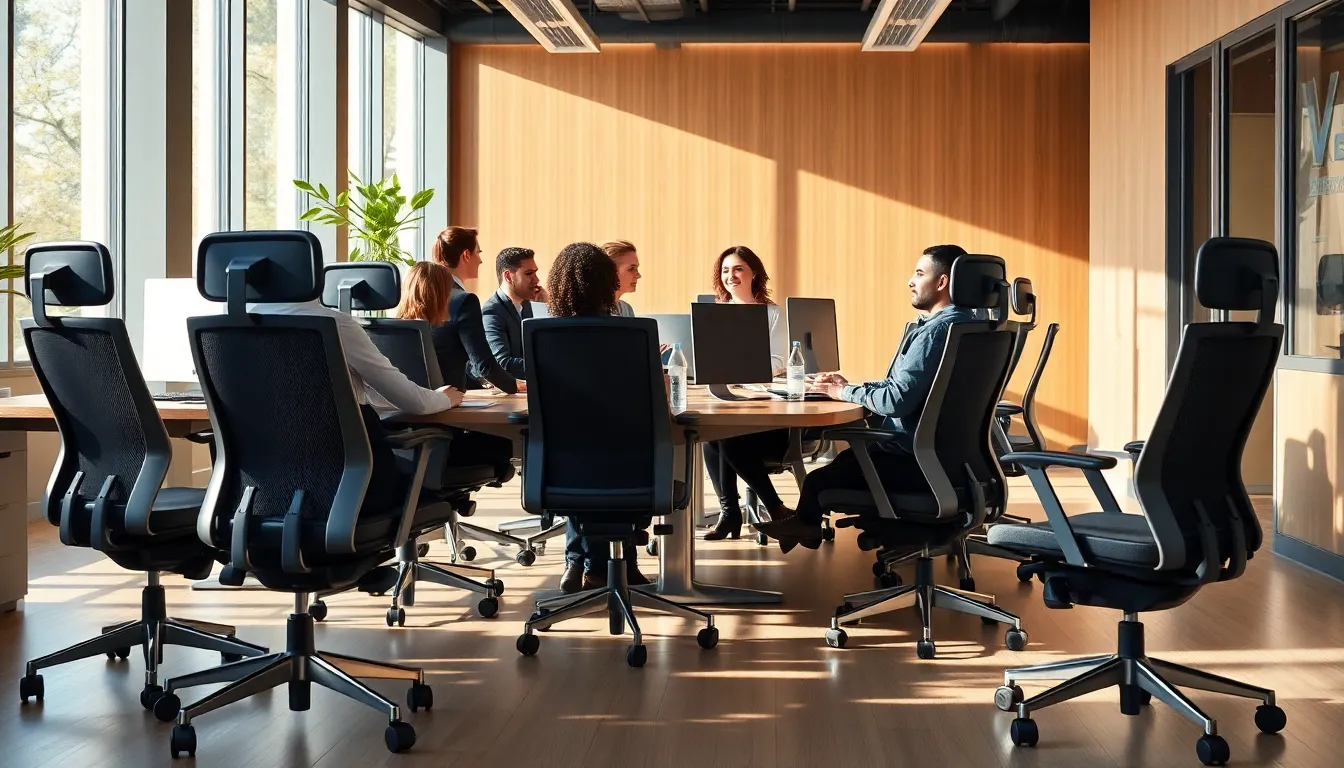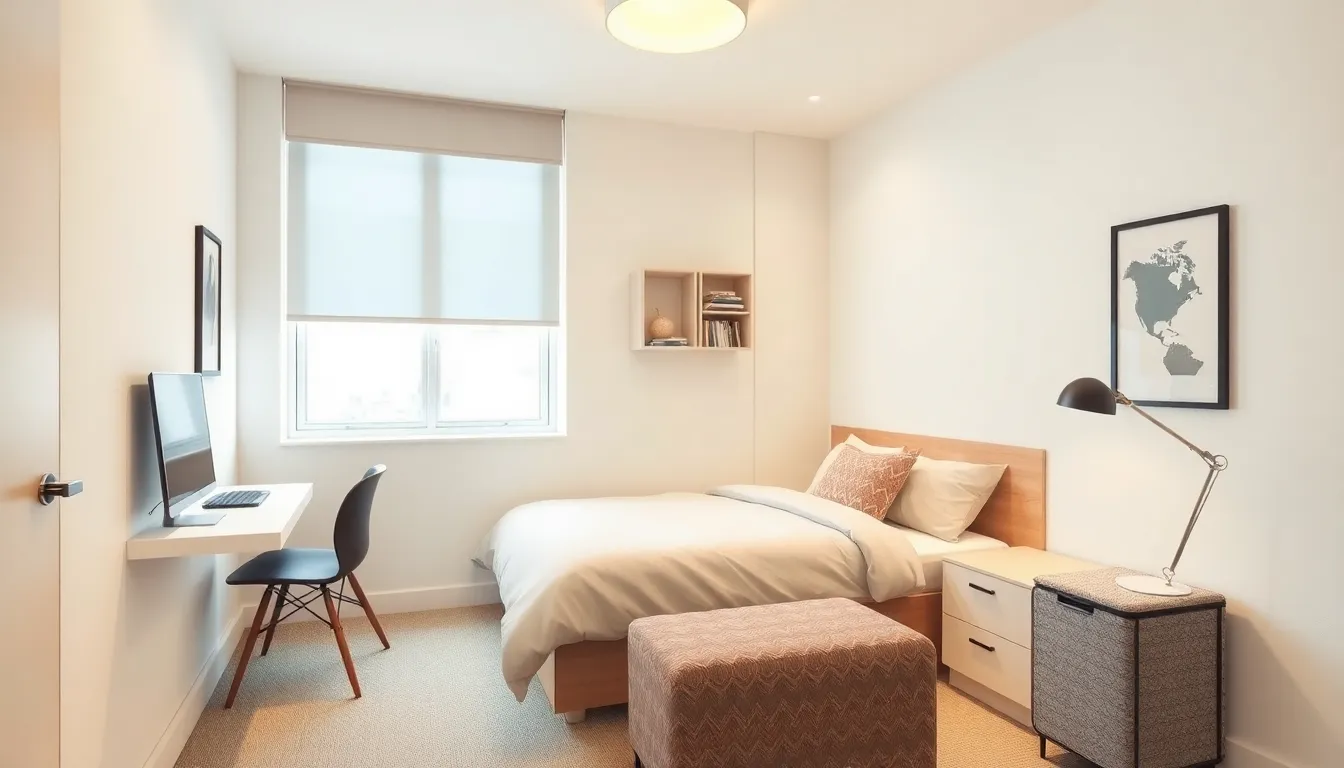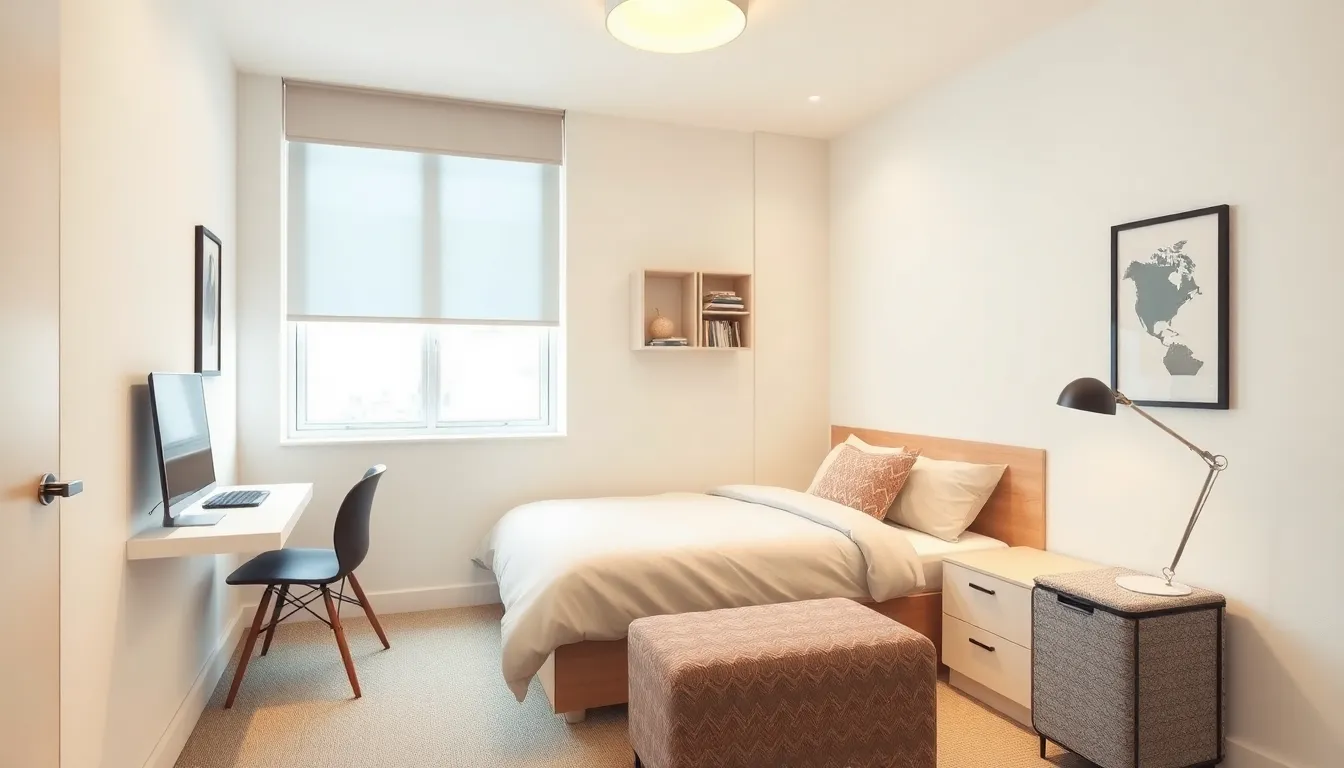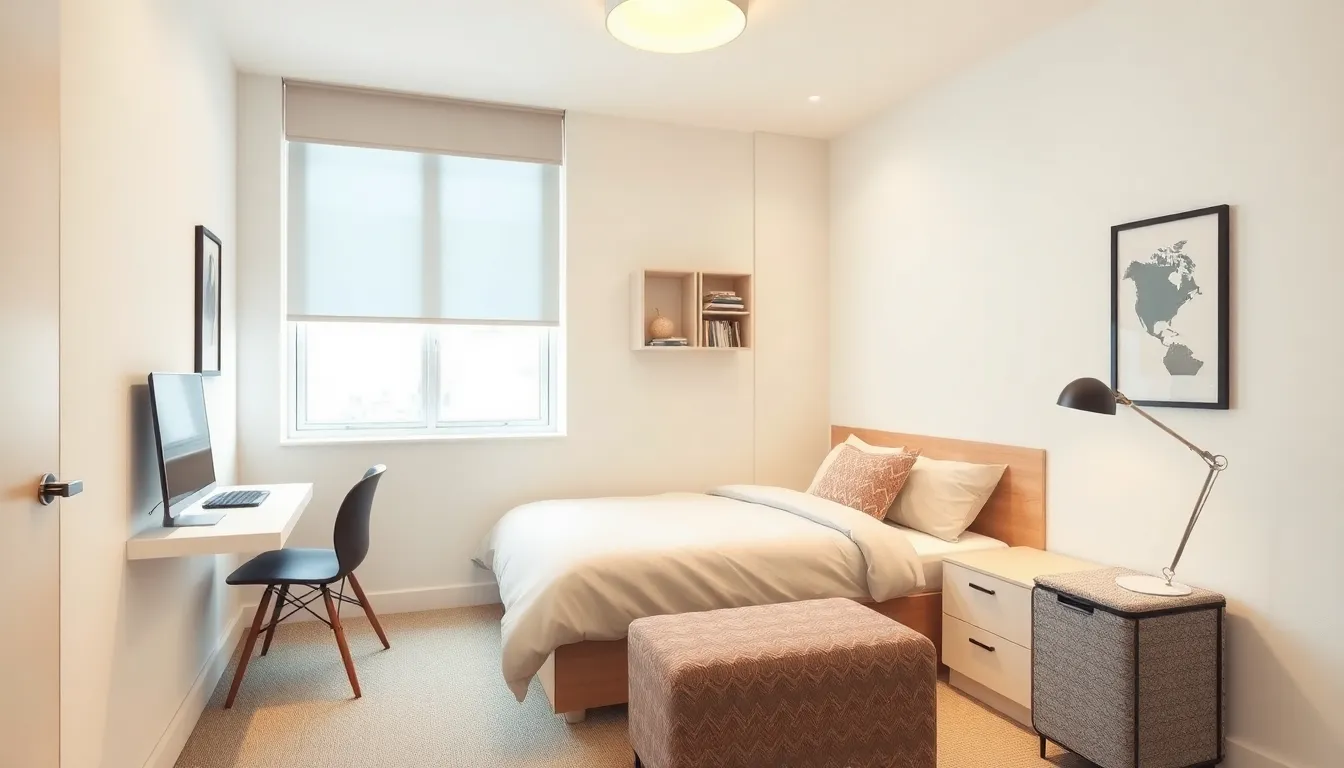In the bustling world of business, the right commercial furniture can make or break the vibe of a workspace. Imagine walking into an office where the chairs are so uncomfortable they could double as a medieval torture device. Not exactly the warm welcome clients are looking for! Investing in stylish and functional furniture not only boosts productivity but also enhances the overall aesthetic, making employees feel like they’re in a place worth thriving.
Table of Contents
ToggleOverview of Commercial Furniture
Commercial furniture serves various purposes in different settings. This type of furniture includes items designed for office, hospitality, and retail environments. Items like desks, chairs, and tables should offer both comfort and functionality to promote productivity.
Material selection plays a crucial role in durability and aesthetics. Popular choices include wood, metal, and high-quality fabric. These materials ensure that furniture withstands the daily rigors of commercial use. Customization options allow businesses to align furniture with their brand identity and specific space requirements.
Ergonomics significantly influence employee well-being and performance. Products designed with ergonomic principles reduce discomfort and enhance posture during long work hours. Studies show that ergonomic furniture can decrease absenteeism and improve overall job satisfaction.
Sustainability is becoming an essential factor in furniture selection. Environmentally friendly materials and processes resonate with consumers and employees alike. Businesses that prioritize sustainability often gain a competitive edge and strengthen their brand image.
Trends in commercial furniture design evolve with changing workplace dynamics. Collaborative spaces have increased the demand for versatile, modular furniture. Comfortable lounge areas encourage creativity and foster teamwork among employees.
Ultimately, investing in quality commercial furniture reflects a company’s values and commitment to its workforce. Thoughtfully selecting pieces can create an inviting atmosphere, enhance employee morale, and promote efficiency.
Types of Commercial Furniture

Commercial furniture serves various purposes across different industries, delivering both functionality and aesthetics. Understanding the specific types can help businesses create spaces that meet their unique needs.
Office Furniture
Office furniture includes desks, chairs, conference tables, and storage solutions. Ergonomically designed chairs encourage comfort during long working hours, while adjustable desks promote flexibility and collaboration. Popular materials like wood and metal enhance durability and style. Modular furniture allows for reconfiguration, catering to changing team dynamics. Incorporating noise-reducing elements can also boost focus in open office layouts, making the workspace more conducive to productivity.
Restaurant Furniture
Restaurant furniture consists of tables, chairs, booths, and bar stools. These pieces must withstand heavy use while complementing the restaurant’s theme. Durable materials like metal and treated wood provide longevity. Comfortable seating encourages patrons to linger longer, boosting sales. Stationary and movable options offer versatility for different dining setups. Additionally, outdoor furniture has become essential as more establishments incorporate al fresco dining, catering to customer preference.
Retail Furniture
Retail furniture encompasses display cases, shelving, checkout counters, and seating areas. Effective layouts enhance customer flow while showcasing products attractively. High-quality materials contribute to the overall aesthetic, reinforcing the brand’s image. Flexible display options allow store owners to easily change layouts as needed. Incorporating interactive features, such as technology integration in displays, can engage customers and enhance their shopping experience. Clear signage and accessible arrangement also improve navigation within the retail space.
Key Features to Consider
Choosing the right commercial furniture involves several key features that directly impact the workspace experience.
Durability
Durability stands as a crucial factor when selecting commercial furniture. It requires materials that can withstand daily use and comply with industry standards. For example, metal and hardwood offer strength and longevity. Also, quality upholstery can resist wear and tear in busy environments. Furniture warranties often indicate robustness, ensuring investments last over time. Regular maintenance enhances durability, prolonging the life of office, restaurant, or retail furniture. Selecting durable furniture ultimately protects investments and supports long-term functionality in commercial spaces.
Design and Aesthetics
Design and aesthetics significantly influence the workspace atmosphere. A cohesive design aligns with branding, reinforcing company values. Color schemes and materials can evoke certain feelings, enhancing employee morale. For instance, contemporary furniture may create a trendy vibe, while classic designs evoke professionalism. Additionally, incorporating versatile pieces supports diverse layout requirements and fosters collaboration. A well-designed space encourages creativity and productivity. Employing a thoughtful approach to aesthetics shapes positive impressions among clients and employees alike.
Functionality
Functionality is essential in choosing commercial furniture to meet specific needs. It includes versatile and modular designs that adapt to various tasks. Office chairs with adjustable heights promote comfort and enhance productivity, while conference tables support meetings and collaborative efforts. Restaurant furniture must accommodate different dining layouts and customer flow. Retail shelving that showcases products draws customer attention and encourages purchases. Furniture that focuses on multiple uses ensures efficient use of space and resources, making day-to-day operations smoother and more effective.
Benefits of Choosing Quality Commercial Furniture
Quality commercial furniture offers numerous advantages that significantly enhance workspace productivity and employee satisfaction. Ergonomic designs improve comfort, increasing focus and reducing discomfort during long working hours. A well-structured workspace, equipped with the right furniture, fosters collaboration and encourages creativity among employees.
Durability remains a top benefit of high-quality furniture. Investment in robust materials leads to long-lasting products that withstand daily use, which minimizes the frequency of replacements and repairs. Companies benefit from reduced costs over time due to lower maintenance requirements.
Design impacts perception. Aesthetically appealing furniture creates an inviting atmosphere that aligns with a company’s brand image. When the workspace reflects a modern and professional appearance, it impresses clients and boosts employee morale.
Functionality plays a crucial role in efficient space utilization. Versatile and modular furniture adapts easily to changing business needs, accommodating various tasks and facilitating collaborative work. This flexibility helps organizations maximize their available space and resources.
Sustainability increasingly factors into consumer preferences. Choosing eco-friendly materials resonates with environmentally conscious employees and clients, fostering a positive corporate image. Investing in sustainable options supports corporate responsibility initiatives, appealing to a broader customer base.
Ultimately, purchasing quality commercial furniture demonstrates a commitment to employee well-being and the overall work environment. Companies that prioritize the selection of high-quality, functional, and aesthetically pleasing furniture will likely see improved morale, increased productivity, and enhanced brand perception.
Investing in quality commercial furniture is essential for fostering a positive and productive work environment. The right choices not only enhance aesthetics but also promote employee well-being through ergonomic designs and durable materials. As businesses evolve, the demand for versatile and sustainable options continues to grow, aligning with modern workplace needs.
Selecting the right furniture reflects a company’s values and commitment to its workforce. By prioritizing comfort, functionality, and sustainability, organizations can create spaces that inspire creativity and collaboration. Ultimately, thoughtful furniture selection plays a vital role in shaping a brand’s image and driving success.




